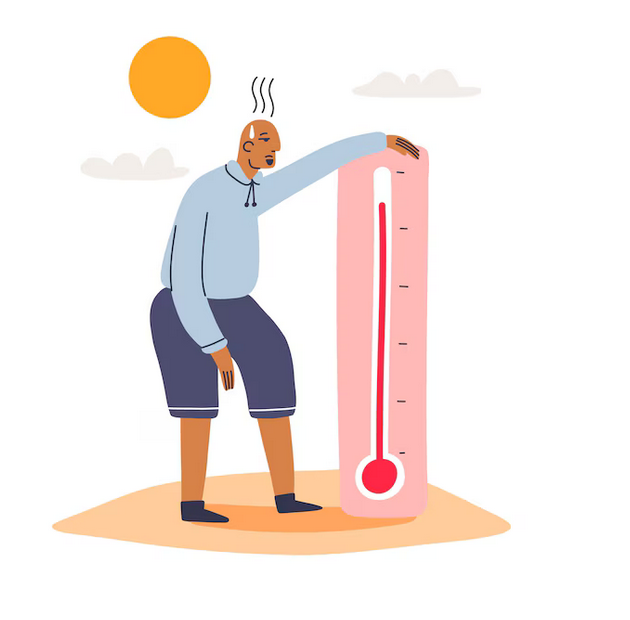By
Newswise — New Jersey, and much of the country, is experiencing a dangerous wave of heat and humidity. When body temperatures rise too high, the brain and body overheat, increasing the risk of heat-related illnesses, strokes or deaths.
Everyone is at risk for heat-related illnesses, including heat stroke, heat exhaustion, heat cramps, heat rash and sun poisoning, which occurs with severe sunburn. The most vulnerable groups include children, older adults, people with chronic illnesses, people with disabilities and those who spend long times outdoors or without air conditioning.
“Sadly, heat-related deaths and illnesses happen every year,” says Diane Calello, executive and medical director of the New Jersey Poison Control Center at Rutgers New Jersey Medical School. “Hyperthermia (heat stroke) not only occurs when temperatures reach dangerous levels, but also from the use of certain therapeutic medicines, recreational (legal) drugs, and illegal substances. These can prevent the body from cooling down through sweating. Too often, this results in serious complications, including drug-induced fever, dehydration, and death.”
Medicines like antidepressants, antihistamines, diuretics, antipsychotics, and stimulants for ADHD (Attention Deficit/Hyperactivity Disorder) can also cause heat-related complications resulting in illness and death. It’s important to know whether the medicine or drug you are taking increases your sensitivity to heat. Contact the New Jersey Poison Control Center for more information; call 1-800-222-1222 or Chat Here. If someone is not breathing, hard to wake up, or having a seizure, call 9-1-1.
“Excessive heat combined with certain substances like ecstasy (MDMA), cocaine, methamphetamine, alcohol, and heroin can be deadly,” said Calello. “Being under the influence of these substances can make it hard to recognize symptoms of overheating.”
Although it might seem that heat stroke comes on suddenly, there are often early warning signs — stomach and muscle cramps, nausea, vomiting, headache, dizziness, weakness, heavy sweat or a lack of sweat, confusion, odd behavior, irritability, delusions, hallucinations, seizures, and coma.
Heat stroke is a medical emergency; it is critical that you act fast. To prevent heat-related illnesses, the New Jersey Poison Control Center offers the following safety tips:
- Stay Hydrated: Drink plenty of water throughout the day, even if you are not thirsty. Avoid sugary drinks and alcoholic beverages, which can dehydrate you.
- Stay Cool: Avoid direct sun. Try to stay indoors in air-conditioned areas, especially when the sun is the hottest (early afternoon through early evening).
- Dress Light: The best clothing for extreme heat is light-colored, loose-fitting, and lightweight.
- Wear Sunscreen and Wide-Brimmed Hat: If outside, apply sunscreen liberally and frequently to protect against sunburn and sun poisoning. Sunburn can cause you to become dehydrated. Remember that sweating, swimming, or otherwise being exposed to water will wash away sunscreen. Remember to reapply sunscreen throughout the day.
- Keep Pets Safe: If it is too hot for you, it is too hot for them. Give pets lots of fresh water and keep them indoors in air-conditioned areas as much as possible. Surfaces in direct sun get dangerously hot. If the ground is too hot to touch, pets shouldn’t be walking or lying on it. Give them a shaded area outside.
- Hot Cars Kill: Leaving people or pets in hot, parked cars can be deadly in a short amount of time. Even cars parked in the shade with their windows open reach deadly internal temperatures. Under no circumstance should you ever leave people or pets inside a parked car during extreme weather.
Image: freepik

